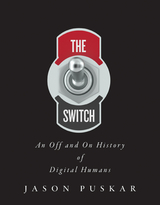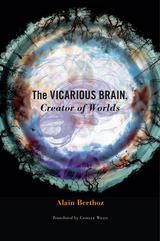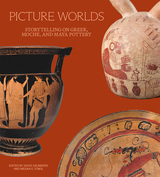
The written word has been a central bearer of culture since antiquity. But its position is now being challenged by the powerful media of electronic communication. In this penetrating and witty book James O'Donnell takes a reading on the promise and the threat of electronic technology for our literate future.
In Avatars of the Word O'Donnell reinterprets today's communication revolution through a series of refracted comparisons with earlier revolutionary periods: the transition from oral to written culture, from the papyrus scroll to the codex, from copied manuscript to print. His engaging portrayals of these analogous epochal moments suggest that our steps into cyberspace are not as radical as we might think. Observing how technologies of the word have affected the shaping of culture in the past, and how technological transformation has been managed, we regain models that can help us navigate the electronic transformation now underway. Concluding with a focus on the need to rethink the modern university, O'Donnell specifically addresses learning and teaching in the humanities, proposing ways to seek the greatest benefit from electronic technologies while steering clear of their potential pitfalls.

From the telegraph to the touchscreen, how the development of binary switching transformed everyday life and changed the shape of human agency
The Switch traces the sudden rise of a technology that has transformed everyday life for billions of people: the binary switch. By chronicling the rapid growth of binary switching since the mid-nineteenth century, Jason Puskar contends that there is no human activity as common today as pushing a button or flipping a switch—the deceptively simple act of turning something on or off. More than a technical history, The Switch offers a cultural and political analysis of how reducing so much human action to binary alternatives has profoundly reshaped modern society.
Analyzing this history, Puskar charts the rapid shift from analog to digital across a range of devices—keyboards, cameras, guns, light switches, computers, game controls, even the “nuclear button”—to understand how nineteenth-century techniques continue to influence today’s pervasive digital technologies. In contexts that include musical performance, finger counting, machine writing, voting methods, and immersive play, Puskar shows how the switch to switching led to radically new forms of action and thought.
The innovative analysis in The Switch makes clear that binary inputs have altered human agency by making choice instantaneous, effort minimal, and effects more far-reaching than ever. In the process, it concludes, switching also fosters forms of individualism that, though empowering for many, also preserve a legacy of inequality and even domination.

Groping around a familiar room in the dark, or learning to read again after a traumatic brain injury; navigating a virtual landscape through an avatar, or envisioning a scene through the eyes of a character—all of these are expressions of one fundamental property of life, Alain Berthoz argues. They are instances of vicariance, when the brain sidesteps an impasse by substituting one process or function for another. In The Vicarious Brain, Creator of Worlds, Berthoz shows that this capacity is the foundation of the human ability to think creatively and function in a complex world.
Vicariance is often associated with proxies and delegates, but it also refers to a biological process in which a healthy organ takes over for a defective counterpart. Berthoz, a neuroscientist, approaches vicariance through neuronal networks, asking how, for example, a blind person can develop a heightened sense of touch. He also describes how our brains model physical reality and how we use these models to understand things that are foreign to us. Forging across disciplinary boundaries, he explores notions of the vicarious in paleontology, ethology, art, literature, and psychology.
Through an absorbing examination of numerous facets of vicariance, Berthoz reveals its impact on an individual’s daily decision making and, more broadly, on the brain’s creation of worlds. As our personal and social lives are transformed by virtual realities, it is more crucial than ever before that we understand vicariance within our increasingly complex environment, and as an aspect of our own multiplying identities.
READERS
Browse our collection.
PUBLISHERS
See BiblioVault's publisher services.
STUDENT SERVICES
Files for college accessibility offices.
UChicago Accessibility Resources
home | accessibility | search | about | contact us
BiblioVault ® 2001 - 2024
The University of Chicago Press









